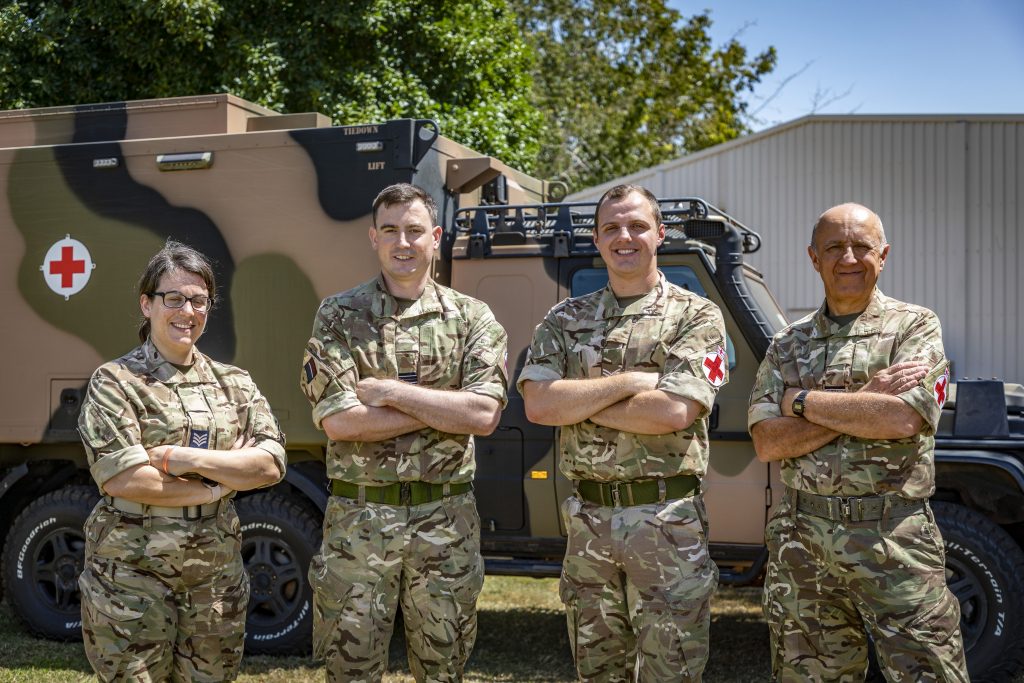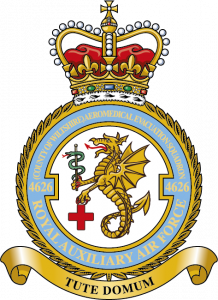A team of Royal Air Force medics are working closely with Australian and other allies to keep the 170 strong RAF detachment healthy on Exercise Pitch Black currently underway down under.
Reservist GP Wing Commander Peter Gilbert, a member of 4626 Aeromedical Evacuation Squadron Brize Norton, is part of a team of four health professionals on the exercise. He said: “We’re embedded within the Australian Medical Centre at RAAF Darwin and they’ve given us two clinical rooms and access to their nursing treatment station should we need it. They’re happy to support us in any way they can and we’ve had some great collaboration to make sure we’re following their processes and all singing off the same hymn sheet.”
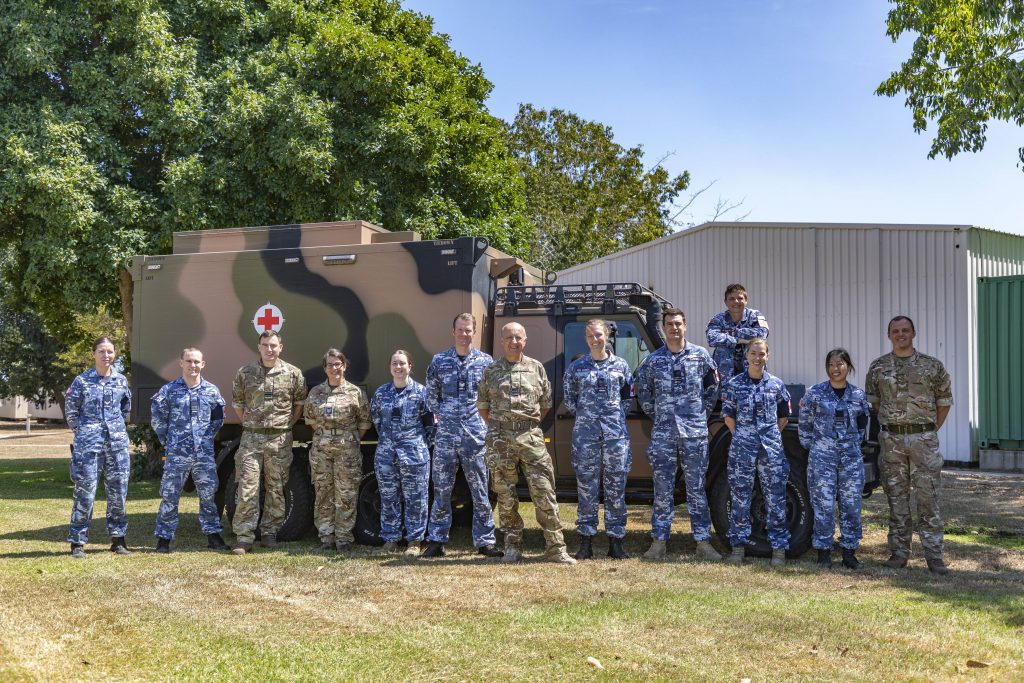
Physiotherapist Flight Lieutenant Dave Bradshaw has deployed primarily to support the fast jet element of the exercise. A reservist also in 4626 Sqn, he usually works as a civilian at the Brunei Garrison, primarily with the Army but soon RAF personnel when the Puma helicopter arrives.
The high and somewhat punishing g-forces experienced on combat manoeuvres by fast jet pilots sees RAF physios on hand to treat any emerging musculoskeletal issues at their onset. Flt Lt Bradshaw explained how his role differed from that of physios in the NHS: “We have a real air-minded approach and there aren’t many Armed Forces across the world who have this capability. It’s about keeping a highly trained and expensive asset doing their job”
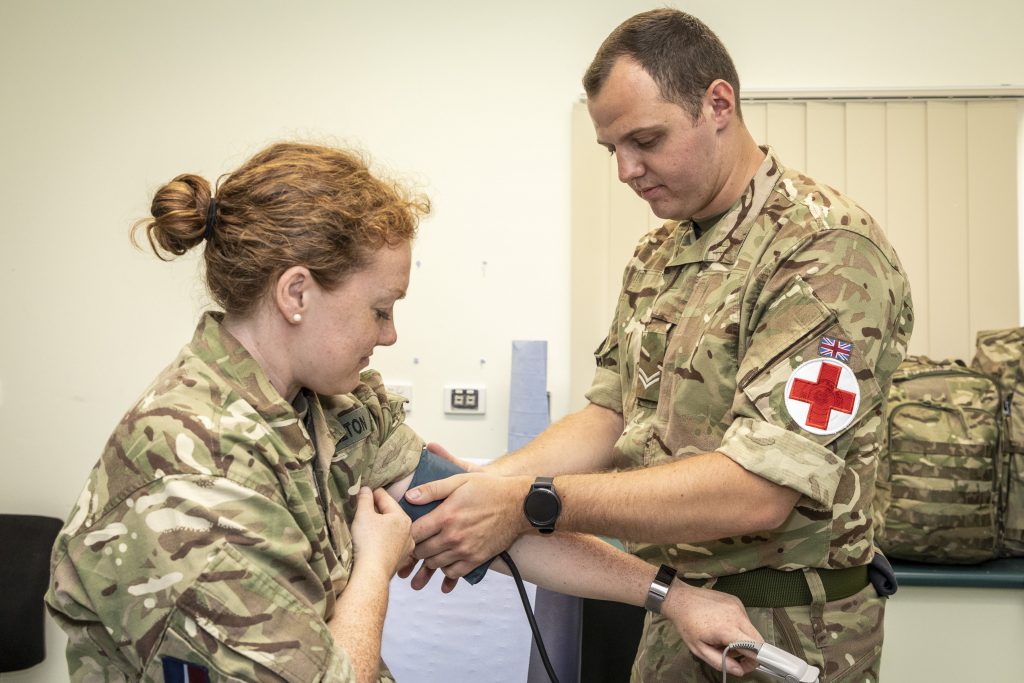
Paramedic Corporal Liam Nayler, is a member of the Deployable Aeromedical Response Team Squadron, known to all as DARTS. He joined up as a medic with the ambition to train as a paramedic. He said: “Being a paramedic in the RAF provides a range of opportunities to deliver deployed health care in a variety of environments around the world.
“The paramedic role is primarily deployed, from providing pre-hospital emergency care covering drop zones, ranges, and exercises in the UK or overseas through to providing humanitarian and disaster relief. We can deploy independently or as part of a healthcare team as required.”.
“This is a fantastic opportunity. These exercises don’t come around very often so I feel very fortunate to be here in Australia working with the Aussies, the New Zealand Defence Force and US Marines and Air Force who are with us here.”
Seeking to prevent health issues arising is the role of Environmental Health Practitioner Sergeant Wendy McCleary: “My role is primarily advisory, mainly from the heat and catering perspectives, but also from the venomous creatures and insects which can bite you here.”
All personnel carried out online heat acclimatisation training before leaving the UK but with permanent sunshine, rising humidity and engineers working in the open air it is essential to monitor conditions using a wet bulb globe thermometer.
“I’m here to advise on the actions they should be taking and how to mitigate any risk of personnel suffering with climatic injuries, therefore stopping the doctor and paramedic having to do their jobs.”
And being in Australia the wildlife poses an additional risk. “We have snakes, spiders, insects and aquatic animals that can give us disease, so I give advice on measures help prevent personnel being bitten or stung and potentially transmitting disease.”
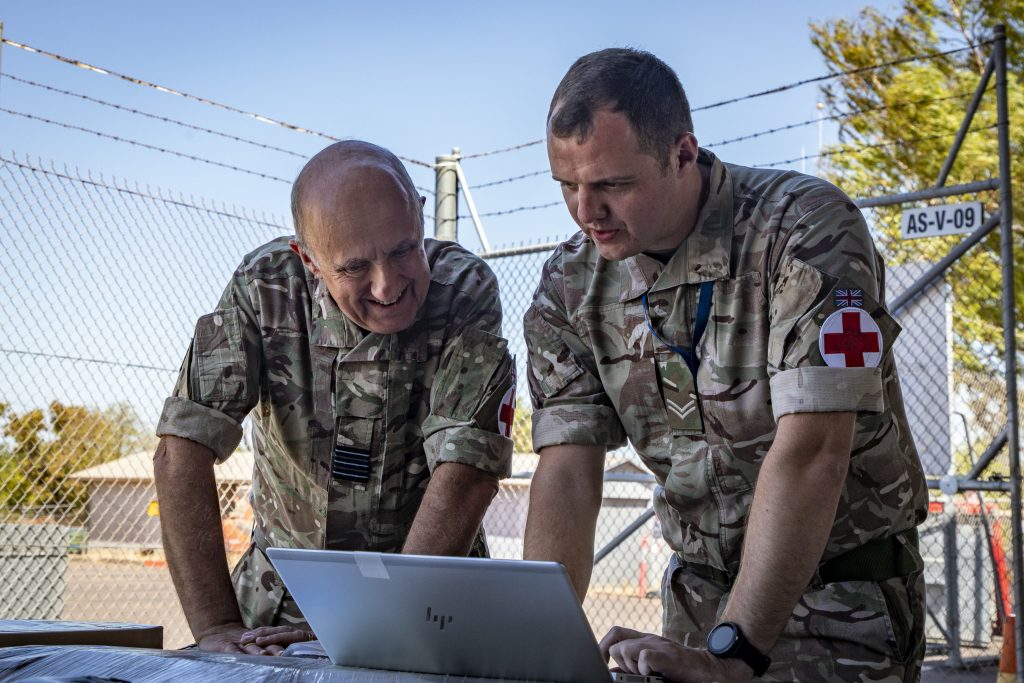
Asked to sum up the contribution of the team Wg Cdr Gilbert said: “Our role is to help keep the detachment members safe and well to ensure the RAF gets the best possible benefit from travelling to the other side of the World to take part in this incomparable training and international engagement event”.
To find out more about 4626 Aeromedical Evacuation Squadron Brize Norton follow the link below:

